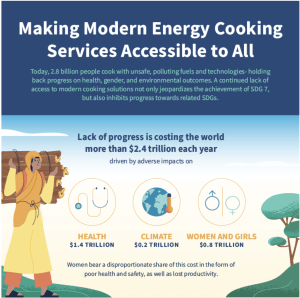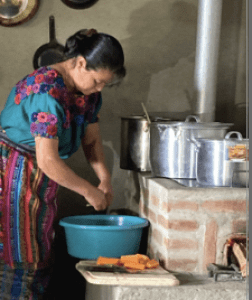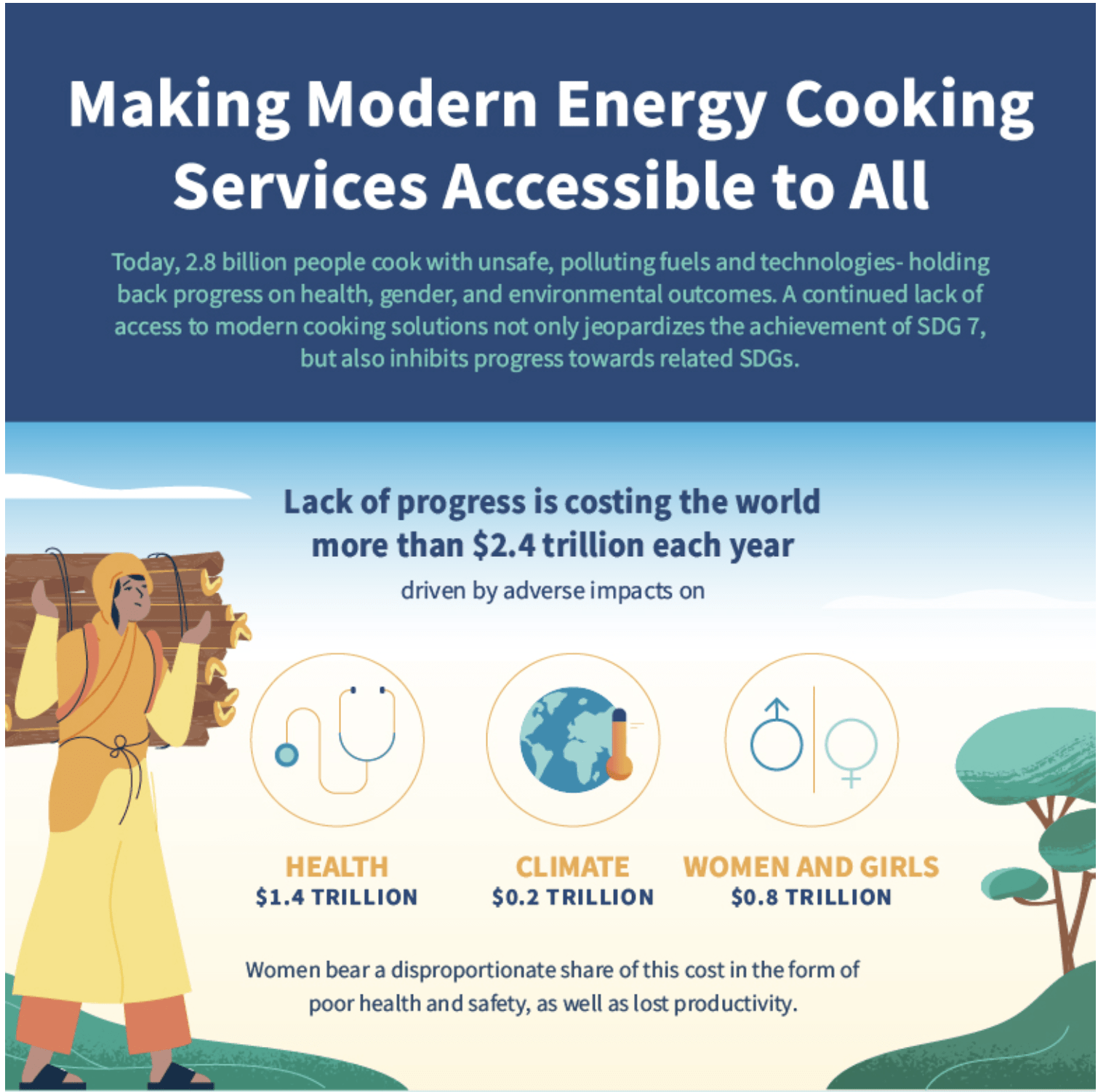Your Club can clear away a misery of smoke, illness, and drudgery by joining cleaner cookstove projects with immediate and lasting benefits for families in the developing world. ESRAG’s Clean Cooking Task Force is ready to equip you for success with online resources, presentations to your Club and free technical assistance. Task Force members offer extensive frontline experience working effectively in very diverse cultural and environmental conditions, including Central America, Africa, and the Himalayas.
Cleaner cookstove projects became eligible for Rotary Global Grants for the first time in 2021, and the Task Force is glad to help you develop well-designed proposals you can use to apply for district or Rotary Foundation grants. They also want to connect clubs across the world to design, fund, and implement successful projects.

This graphic from the World Health Organization conveys the critical global need. Binod Koirala’s article from Nepal in this month’s ESRAG newsletter illustrates the impact: welcome relief from ill health and substantial financial savings. A third benefit is greater gender equality, since women disproportionately bear the burden of searching for firewood and suffering from acute and chronic illness because they have been spending long hours indoors exposed to dangerous particulates as they cook.

The right solution is a fascinating puzzle in technology transfer. Task Force members can help you choose a stove design and implementation plan that fits the culture and conditions of a specific community. “As Mike Hatfield of Stove Team International points out, the first question is: will the woman accept this? If they do, you’re half way there,” says Task Force Co-Chair David Knoppert (Rotary Club of London-Hyde Park, Ontario, Canada). For example, the Justa stove (pictured here) being used in Central America has a large griddle surface ideal for cooking tortillas as well as pots of beans and rice. The Nepali project builds on the country’s growing hydroelectric grid and the fact that the government is encouraging and helping poor people to electrify their homes. By using electric stoves, they are saving 60% on monthly cooking energy costs.
Knoppert commends the World Bank’s multi-tier framework (keep scrolling down) of six technical and contextual factors that vary enormously from community to community. The mud stoves which Task Force member Maya Smeulders (Rotary Club of Abingdon Vesper, UK) is helping Ugandan communities disseminate can be made from free or inexpensive materials by people in those increasingly arid areas, cuts firewood needs by two thirds, and saves mothers up to 25 hours a week trying to find fuel. Women love the way they cook. Many stove projects have co-benefits by promoting reforestation and creating jobs for local people who construct stoves and train others to build or use them.
With 2.8 billion people still cooking with unsafe, polluting fuels and equipment, humankind is suffering losses which WHO estimates total more than $2.4 trillion a year. You can help overcome that by connecting with ESRAG’s Clean Cooking Task Force. “We want to match clubs who want to do clean cookstove projects with donor clubs,” says Task Force Chair Doug Thompson (RC Stratford, Ontario, Canada). Thanks to Rotarians’ growing comfort with online videoconferencing via Zoom and other platforms, “We’re willing to present to any club in developing or developed countries. It’s crucial to find interested clubs in both settings.”
You can request a presentation via the button on the Task Force’s website, or show one of the many project videos to your Club or international service committee.
The Clean Cooking Task Force members look forward to meeting you, and working with you to rocket Rotary’s impact to a new height in saving lives and liberating communities from the economic burdens of pollution-caused disease. Not only that, you will be helping to slow climate change, whether you persuade Rotarians in the rich world to switch from gas stoves to electric, or free Ugandan mothers from the endless hunt for firewood that is driving deforestation and aridity.
